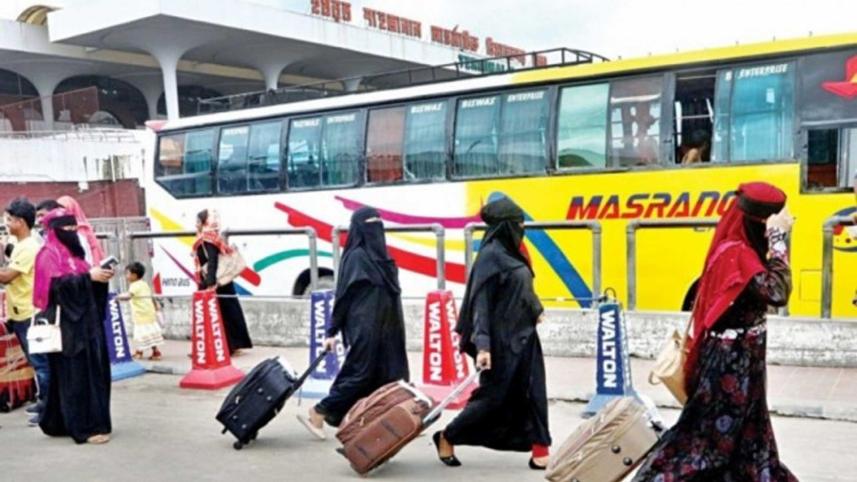Women workers return with crushed dreams

When homecoming should be a joyous occasion, it is mostly the opposite in case of the female migrant workers of Bangladesh. Hundreds return empty-handed, with bruises on their bodies resulting from physical abuse in the hands of their employers. These women leave behind their families at home in search of legal earning opportunities abroad, but end up losing whatever they had in the beginning. The stories of their plight in foreign lands attract media headlines every now and then, but usually they don't reach the corridors of power where they should.
Some research findings on the issue, presented by the Bangladesh Institute of Labour Studies (BILS) on December 26, 2021, shed much light on the conditions of our female migrant returnees. About 55 percent of 323 female migrant workers' return to the country was either unexpected or forced, and as many as 22.6 percent of the female migrants returned before even completing one year of their migration. About 17.6 percent came back between one and two years, and 17.3 percent within two to three years. The data was collected between July and December in 2020. The female migrant workers also have the sorry tale of abuse of many dimensions to tell the authorities upon return. About 38 percent of the returnees were physically abused in their destination countries, while 52 percent were victims of forced labour. Many returnees came back empty-handed, a burden of debt already hanging over their heads: the report showed that about 61 percent of the returnees had a debt of Tk 76,736 each.
It's disconcerting to note that the woes of the returnees don't end with their return home. They face the new challenge of social discrimination and even stigma in some cases, on top of economic hardships. About 60 percent of the returnees interviewed could not find work or employment, and in terms of social stigma, 52 percent perceived a change of attitude among the members of their community towards them.
It needs no emphasising that this is a serious issue that deserves to be addressed with due priority by the authorities concerned. It has been observed by Shamsun Nahar, member of the parliamentary committee on labour and employment ministry, that about a dozen ministries are involved in providing services to migrant workers, but there is a lack of coordination among them.
Bangladesh will have to look the problem in the eye and formulate policies befitting the dignity and honour of the country's female migrant workers. Not only that, but the employing countries, too, should share the responsibility for the well-being of the migrant workers from the humanitarian point of view. We hope the proposal put forward by nearly 90 percent of the returnee workers to introduce some sort of social security protection scheme will be reviewed by the ministries concerned.



 For all latest news, follow The Daily Star's Google News channel.
For all latest news, follow The Daily Star's Google News channel.
Comments